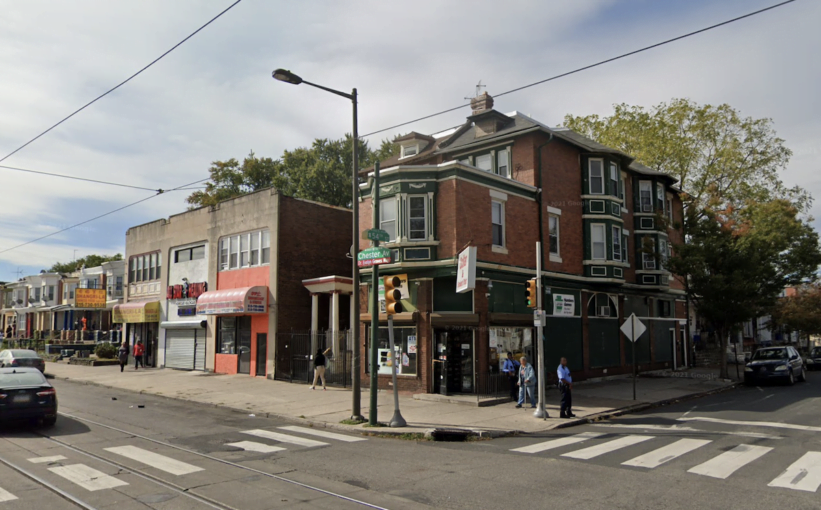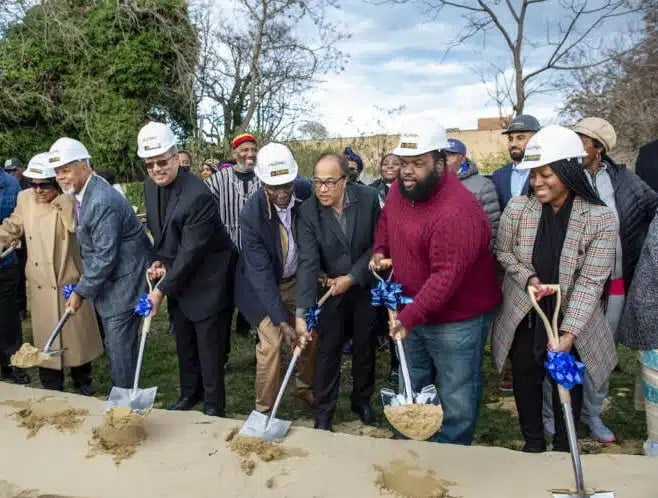Philadelphia Africatown: a black community like no others

BY DEDE YI-FEE
After more than a decade in labor, an ambitious project aimed at bringing economic growth and enhancing the African cultural heritage of a predominantly Black community in Southwest Philadelphia, Pennsylvania is poised to come to life.
The community was previously known as Little Africa because its population of more than 80,000 people consists of about 60% of Blacks, 36% Whites, and 4% Asians. This is the result of the Black community in the area being the fastest growing one in the country. It is estimated that seven percent of Philadelphia’s residents born outside the U.S. come from Africa, as the “family reunification” provision encourages refugees to be resettled in places where they already have kin. Philadelphia is home to Africans from almost every country, but the dominant components are from Nigeria, Liberia, Ethiopia, Somalia, and Ghana.
There is no doubt this project will further deepen Africa’s roots and heritage in the United States.

Little Africa was already known for its annual ACANAFest that attracts over 3,000 people to Philadelphia’s waterfront in the month of August every year. But the town will not be the same once the massive development that is underway is completed.
The novelty about Africatown will include low-income housing, a trade center, performing arts center, innovation & technology center, and a medical center. Also, as part of the plans to boost tourism—for which the area is already famous for thanks to the ACANAFest and other tourist attractions, the community will boast the African and Caribbean Trade Center of Greater Philadelphia with its office and showroom space, meeting rooms, a large auditorium, and a state-of-the-art communications center to accommodate international meetings.
Philadelphia Africatown—or the revamp of what exists now—is the brainchild of both state and local officials of this predominantly African section of the historical city of Philadelphia.
Jannie Blackwell, former local City Council member, first vice president of the Philadelphia Democratic Party, and founder and chair of the Mayor’s Commission on African & Caribbean Affairs, stated in connection with the project: “Africatown is my dream! If I accomplish nothing else on this side, I want Africatown to be that. We have businesses here that are committed to this area.” She noted, pointing out that there are now direct flights from Africa to Philadelphia: “People are going to get off of those planes and come to Africatown to shop, go to restaurants and museums. We’re going to have everything here! I’m honored to be a part of it.”
ACANA, a nonprofit that has been at the forefront of the efforts to provide social and legal support for African immigrants in Philadelphia for decades, is another lynchpin of the project. In addition to existing funds, ACANA received a $9 million state grant last year from the Pennsylvania Redevelopment Assistance Capital Program.
During the solemn launch of the project, ACANA’s CEO, Voffee Jabateh, who went to high school in the area, told a reporter of Axios, a major online news source in America, “It’s been Africatown since almost 2005. It’s just now being branded.”

State Representative Jordan Harris, who represents a part of Southwest Philly that Africatown will run through and who also went to high school in Southwest Philly, said he remembers the effort of the African immigrant community when he was growing up, adding, “What you haven’t seen was the same recognition by government in the area.” The legislator also said, “This is city, state, federal, and private partners working collaboratively with a vision, and that vision is the Africatown project.”
The development of Africatown will cost $16 million. The first phase, which will consist of a medical center and a daycare center, will take 18 months, and the economic development and low-income housing will take two years.
In addition to making life better for the local community, Africatown will also help foster economic ties with Africa, the land of origin of the majority of its residents. Besides its international airport mentioned earlier by Jannie Blackwell, founder and chair of the Mayor’s Commission on African & Caribbean Affairs, the area’s port, PhilaPort, is the largest shipping facility in the entire United States. A lot of African exports destined for America transit through PhlaPort. According to several news reports, Africatown’s trade center will partner with the African Continental Free Trade Area, the Pan-African trade agreement that binds the 54 African member-nations. The local authorities have allegedly reached out to their African counterparts.

The Philly Africatown is not the first of its kind in the United States. A historic community located three miles north of downtown Mobile, Alabama created by West African slaves brought to the United States in 1860 also goes by the name Africatown, AfricaTown USA, and Plateau. The community was formed by 32 of 110 slaves who came as an illegal shipment decades after the ban of slavery in 1808. All came from the Kingdom of Dahomey, smuggled into Mobile on a slave ship named the Clotilda. They were believed to belong to the Yoruba, Ewe, and Fon ethnic groups. Historians say the slaves carried on their West African customs and their languages well into the 1950s, not unlike the Black residents of Southwest Philadelphia’s Africatown where African cuisine, outfits and other notable customs are much alive, obviously drowned in the predominantly American culture.
Also: Cana, an important piece of Black History
There is another Africatown in the United States, with its own specific history: the Africatown in Seattle, Washington’s Central District. Its history goes back to the horrible time in American history when, despite the end of slavery, Blacks were confined to that location in the name of the inhumane Jim Crow Laws which mandated racial segregation in all public facilities throughout the former Confederate states and beyond, literally dehumanizing Black people.

